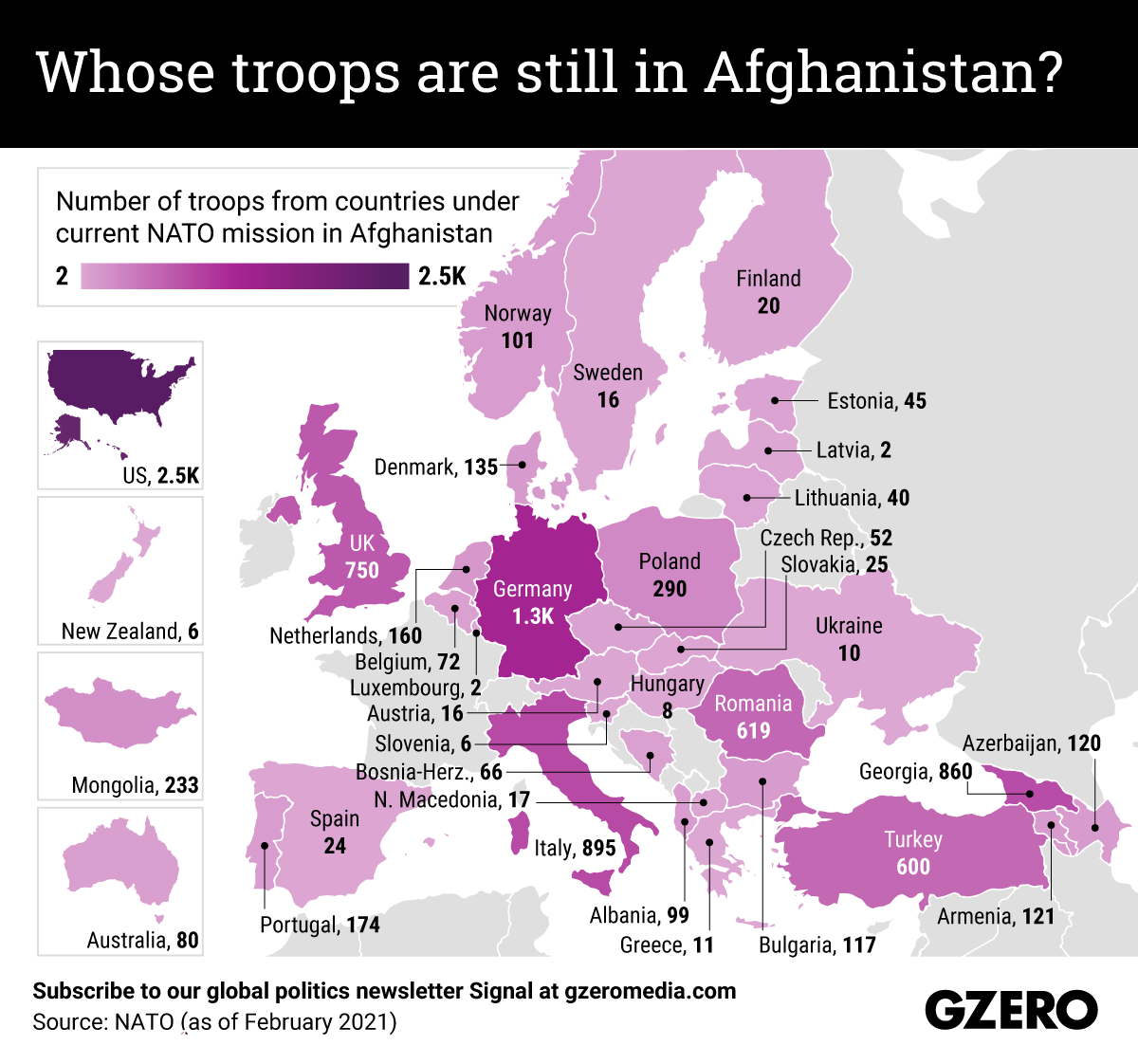The Graphic Truth: Whose troops are still in Afghanistan?
August 25, 2021
Gabriella Turrisi
As the Biden administration scrambles to get US troops and nationals, as well as some Afghans, out of the Taliban-controlled country by August 31, other countries with troops under NATO command — including close US allies like Germany and the UK — are feeling extremely jilted. Forces from 36 countries remain in Afghanistan, and are relying on the US military — which controls the interior of Kabul's airport — to safely get out. As the clock ticks down, we take a look at which foreign nations have boots on the ground in Afghanistan.
From Your Site Articles
- As the US withdraws from Afghanistan all eyes are on Pakistan ... ›
- What does a US troop withdrawal mean for Iraq? - GZERO Media ›
- The Graphic Truth: Was the US war in Afghanistan worth it ... ›
- The slow US retreat from Afghanistan - GZERO Media ›
- Hasty US pullout led to Afghan government collapse, says exiled official - GZERO Media ›
- Kabul attack poses political risks for Biden - GZERO Media ›
